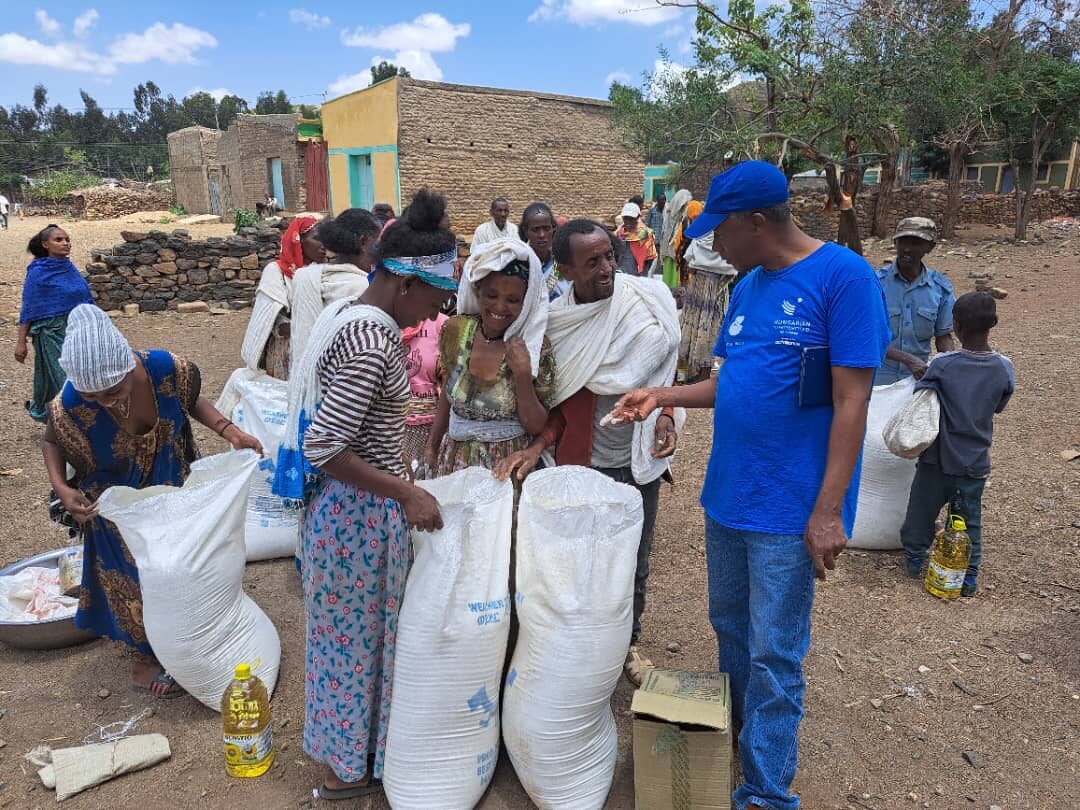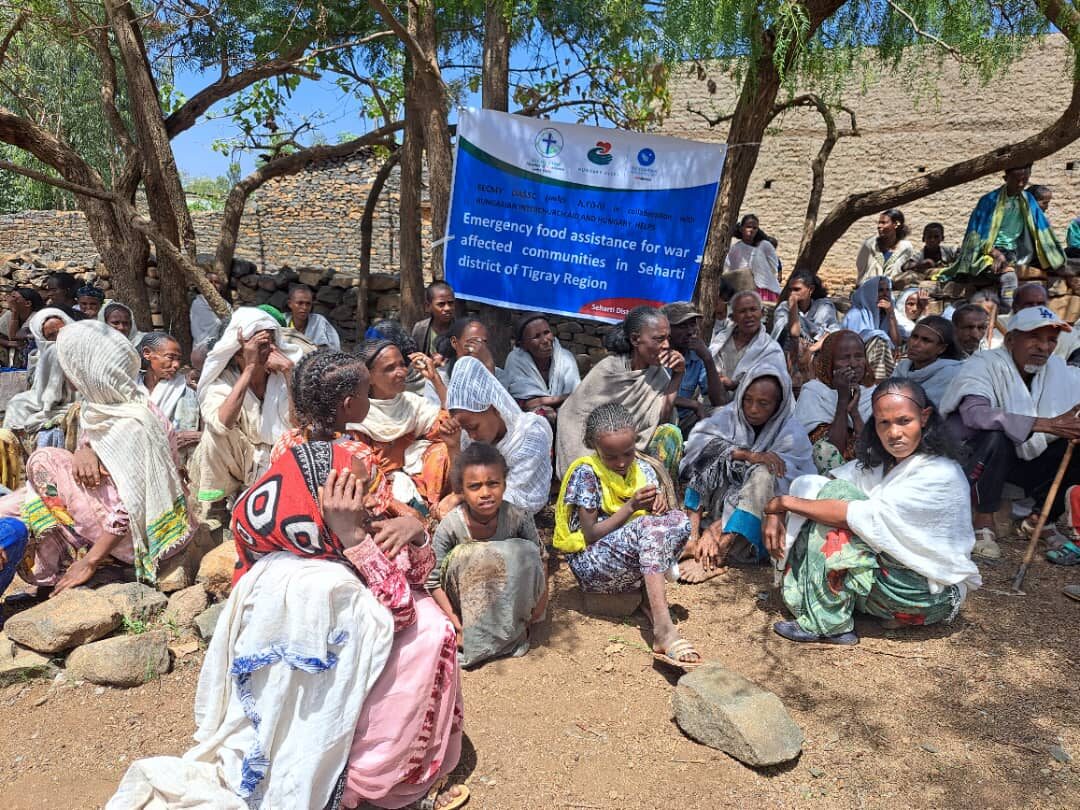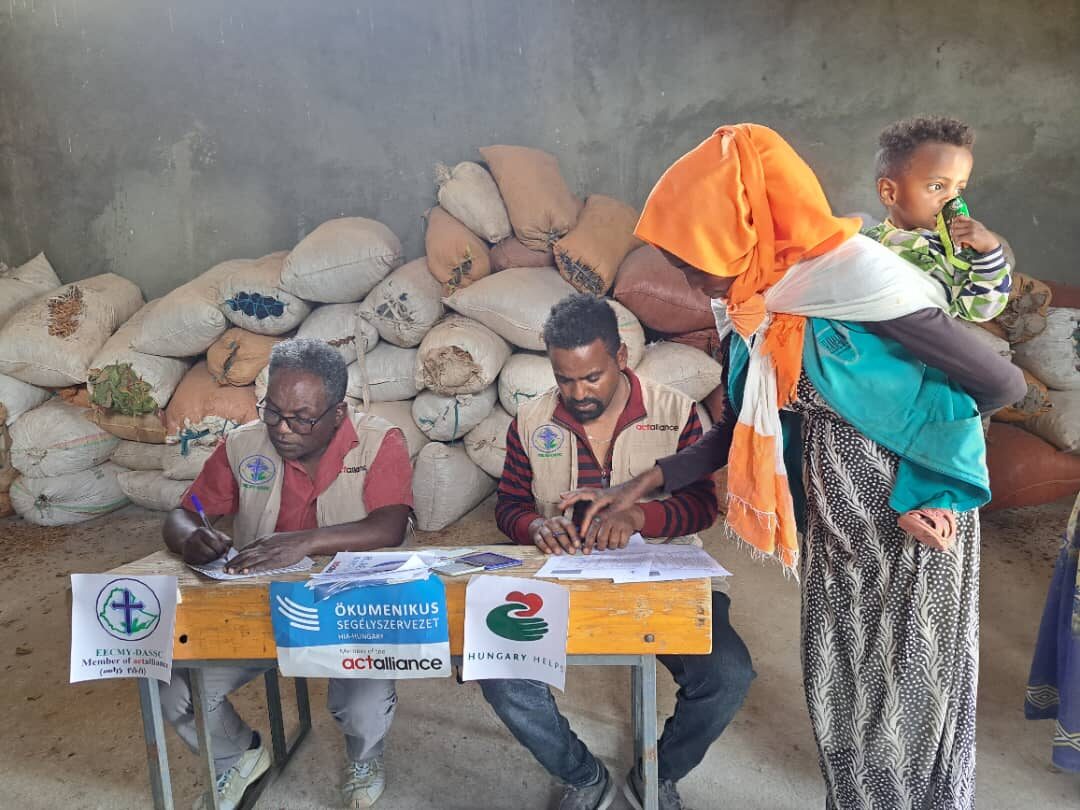This website uses cookies so that we can provide you with the best user experience possible. Cookie information is stored in your browser and performs functions such as recognising you when you return to our website and helping our team to understand which sections of the website you find most interesting and useful.
Food for civil war survivors in Tigray, Ethiopia

The humanitarian situation of Ethiopia has changed for the worse during the last couple of years. The growing needs can be attributed to a variety of reasons, the most important of which are related to climate change and armed conflicts tearing apart the country on the Horn of Africa. While addressing the critical water scarcity that is plagueing Ethiopia, Hungarian Interchurch Aid – in cooperation with local implementing partner ECMY-DASSC – also pays attention to the needs of those suffering the consequences of the terrible civil war in the Tigray region of Ethiopia. Supported by Hungary Helps, HIA provides 3 months worth of flour, vegetable oil and legumes to 200 people in need in the Seharti district of Tigray.

The Seharti district lies in the center of the armed conflict that has affected the humanitarian situation for two years in Tigray. The hostilities between government and rebel forces came to an end in November last year, when the two parties agreed to a ceasefire, and the region once again came under control of the central government. This is when the dire humanitarian situation became clear, as aid organisations were allowed back into the region in December 2022.
Only half of the 110 thousand inhabitants have received any form of assistance since the cessation of combat operations, while agricultural activity is still severely hindered by active minefields and the minimal rainfall for five consecutive “rainy” seasons. During the years of the conflict, violation of human rights, gender-based violence has been common practice. Seeing the severity of the situation, Hungarian Interchurch Aid’s response focuses on providing basic emergency support to the region that has suffered so much.

HIA’s staff has assessed potential beneficiaries, and selected 200 people qualifying for either one of the following categories:
- female heads of families (widows or single mothers)
- elder heads families (grandparents caring for children)
- survivors of gender-based violence
- orphans.
Survivors of gender-based violence were handled separately in order to avoid discrimination by the wider community. All beneficiaries received 3-months worth of wheat flour, legumes and vegetable oil to provide them with nutritional support. At the distribution carried out jointly by HIA and ECMY-DASSC staff, it became clear that none of them has received any kind of support since the start of the hostilities back in December 2020.


